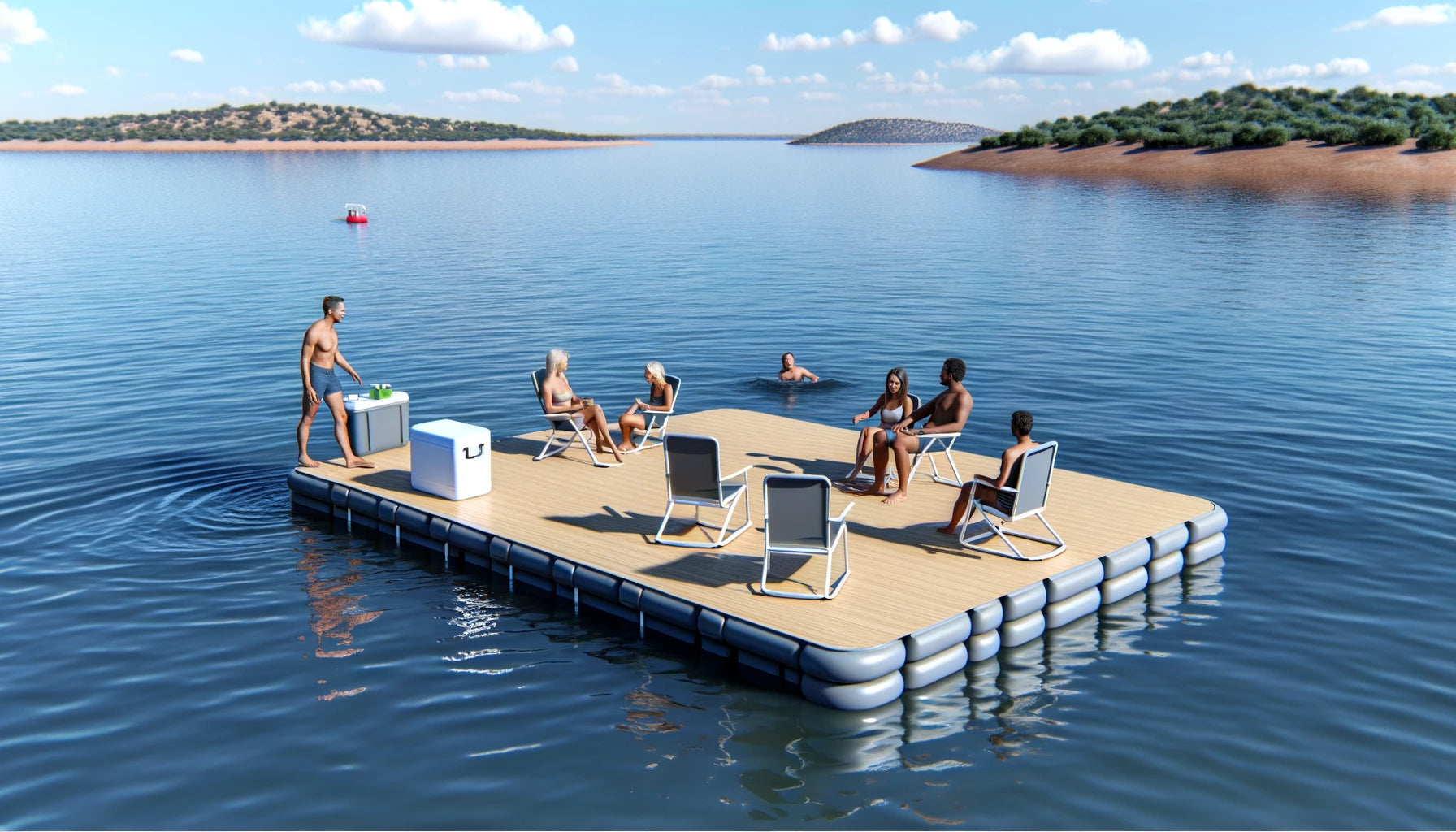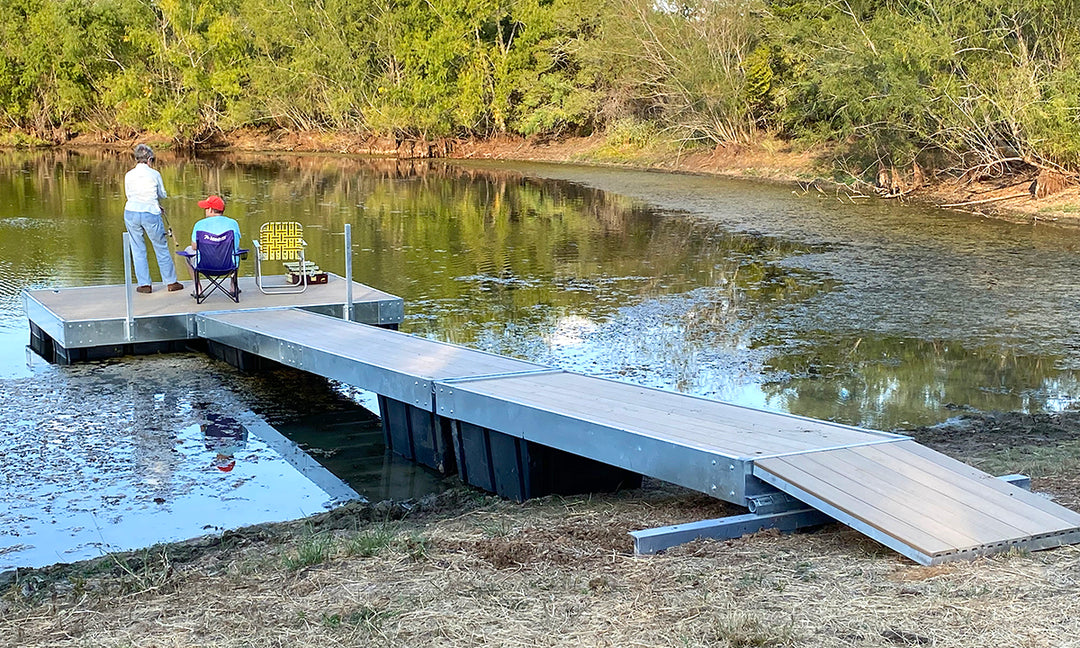Exactly how to Select the Right Floating Dock Builder for Your Customized Dock Demands
Exactly how to Select the Right Floating Dock Builder for Your Customized Dock Demands
Blog Article
The Ultimate Guide to Choosing the most effective Floating Docks
Selecting the optimal floating dock requires a thorough understanding of different components that influence both efficiency and durability. Variables such as dock kinds, materials, and necessary features significantly impact your decision-making procedure.
Understanding Floating Dock Kind
When picking a drifting dock, it is important to understand the various kinds available, as each serves distinctive functions and applications. Floating docks mainly fall right into 3 categories: modular, fixed, and pontoon docks.
Modular docks are composed of specific sections that can be easily assembled or reconfigured, making them excellent for altering water degrees and diverse uses, such as business procedures or entertainment tasks. Their versatility enables personalization based upon specific requirements.

Pontoon docks are defined by their resilient framework, typically composed of several pontoons that offer security and assistance. They are especially fit for larger vessels and are frequently made use of in marinas or for waterside residential properties. Understanding these kinds help in picking the most ideal floating dock to fulfill particular needs, guaranteeing optimum capability and safety and security.
Secret Materials for Toughness
Choosing the right products for floating docks significantly influences their longevity and long life. The most typical materials consist of wood, plastic, metal, and composite materials, each offering distinctive advantages and constraints.
Wood, frequently favored for its aesthetic allure, needs regular maintenance to withstand wetness and decay. Pressure-treated lumber can improve resistance to rot, but it may still be at risk to pests and weathering.

Plastic docks, made from high-density polyethylene (HDPE), are resistant to deterioration, UV radiation, and impact, making them a prominent selection for seaside environments. Their lightweight nature additionally helps with easy setup and moving.
Steel docks, usually built from aluminum or galvanized steel, provide remarkable strength and longevity. They are resistant to rust, specifically when dealt with, but may call for added insulation to prevent heat buildup in warm environments.
Composite products, combining wood fibers and plastics, deliver the benefits of both timber and plastic, resisting moisture and fading while calling for minimal maintenance. - floating dock services
Ultimately, the option of materials should line up with environmental conditions, planned usage, and maintenance choices to make sure the floating dock stays functional and visually pleasing with time.
Essential Functions to Consider
While the option of products is vital, taking into consideration vital attributes for floating docks is just as essential to make certain optimal performance and individual fulfillment. One essential feature to examine is the dock's buoyancy ability, which determines just how much weight it can sustain without submerging. floating dock company. This is vital for suiting boats, individual boat, and even entertainment tasks
Additionally, transportability is a substantial consideration. Depending on your demands, you may want a dock that is simple to dismantle and transfer, particularly if you intend to move it seasonally. Stability is one more necessary feature; a properly designed floating dock should decrease motion brought on by wind and water currents, providing a safe and secure platform for individuals.
Security functions, such as non-slip surface areas and rounded edges, Full Article are additionally critical to avoid mishaps, particularly in wet problems. Think about the schedule of devices, such as cleats, bumpers, and ladders, which can enhance the capability of your dock.
Setup and Maintenance Tips
Establishing and maintaining a drifting dock needs mindful preparation and interest to information to ensure its long life and optimal performance. Begin by picking a suitable place that minimizes direct exposure to solid currents and waves, which can trigger deterioration. Ensure that the water depth suffices for the dock's height which it is secured safely to avoid activity.
Throughout installation, adhere to the maker's standards closely, as incorrect setting up can compromise stability. Usage premium products immune to deterioration, such as light weight aluminum or treated wood, to improve durability. Regularly examine all components, consisting of floats, ports, and securing systems, for signs of damages or wear.
If your dock makes use of flotation devices, ensure they remain free and intact from punctures. By sticking to these installment and upkeep suggestions, you can enjoy a reputable and functional floating dock for years to come.
Budgeting for Your Dock
Budgeting for your dock is an essential step that can significantly affect your overall satisfaction and financial investment in a waterfront residential or commercial property. Developing a clear budget plan assists you browse the various choices available and ensures you make informed decisions that align with your economic abilities.
Begin by determining the size and style of the dock you need, as these elements will significantly affect the cost. Floating docks can differ dramatically in rate, relying on products, buoyancy, and functions like accessories and ramps. Study different manufacturers and providers to compare costs and comprehend the market value.
Along with first expenses, think about ongoing costs such as maintenance, insurance, and possible repair work. Assign funds for these persisting expenses to stay clear of surprises down the line. It's also prudent to spending plan for any best site kind of necessary permits or evaluations, which may be needed by regional guidelines.
Lastly, bear in mind the prospective return on investment. A tactical dock can boost your property's worth and appeal, offering a favorable economic effect in the long term. By budgeting properly, you can guarantee that your dock meets your demands without endangering your monetary security.
Verdict
In verdict, choosing the ideal floating dock demands an extensive examination of numerous aspects, including dock kinds, products, crucial functions, and installment processes. Focusing on longevity and compliance with local policies inevitably improves capability and building worth. Cautious consideration of budgetary constraints will further make sure a sound investment. By adhering to these guidelines, individuals can make enlightened decisions that promote long-term contentment and usability in water settings.

While the choice of products is essential, considering necessary functions for floating docks is just as important to ensure optimum performance and customer satisfaction.Setting up and keeping a drifting dock needs careful planning and interest to detail to view it now guarantee its longevity and optimal efficiency. Floating docks can vary considerably in cost, depending on products, buoyancy, and functions like ramps and devices.In final thought, picking the suitable floating dock necessitates a detailed analysis of various elements, including dock kinds, materials, vital functions, and installation procedures.
Report this page